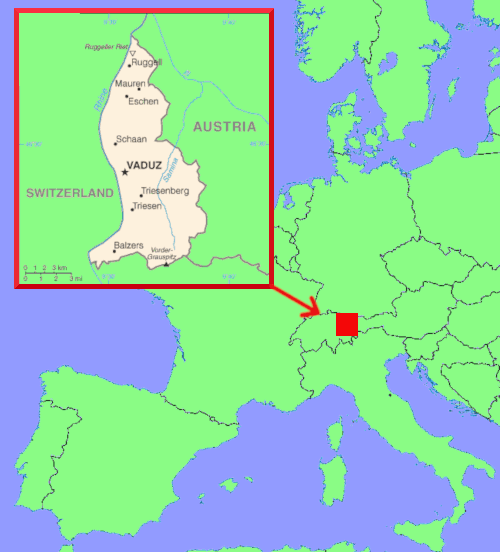
Circle the area on this map

C. According to the CIA World Factbook, the oil-rich nation of Qatar ranks second with a GDP per person of $124,100; Monaco ranks third at $115,700, Bermuda ranks sixth at $99,400; and the United States ranks 19th at $59,800. Burundi and the Central African Republic rank at the bottom with a GDP per person of $700 a year.
B. Prince Hans-Adam II is the head of state of Liechtenstein, a constitutional monarchy with an elected parliament that enacts its laws. The nation also is a direct democracy, where voters can propose and enact constitutional amendments and legislation independently of the legislature.
D. With an area of 0.17 of a mile, Vatican City is the smallest sovereign state in Europe and the world. It is one of Europe’s six “microstates” along with Liechtenstein, Andorra, Malta, Monaco and San Marino. With and area of 181 square miles (a bit smaller than the city of Albuquerque), the Principality of Andorra is the largest of these tiny independent nations.
D. The microstates have thrived as tax havens that help wealthy individuals and corporations hang onto their money. But, the countries have recently begun changing some of their laws under pressure from larger nations which are trying catch up with their tax-dodging citizens.